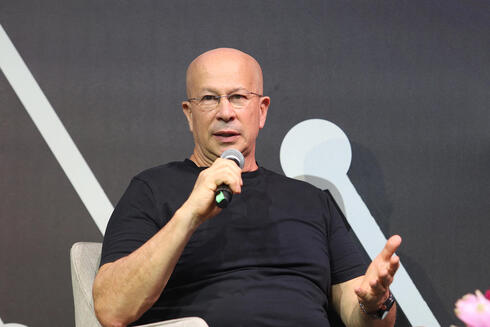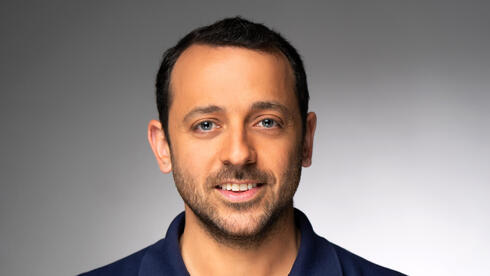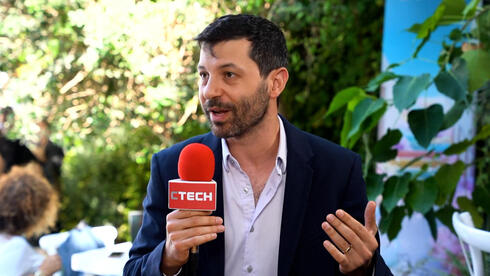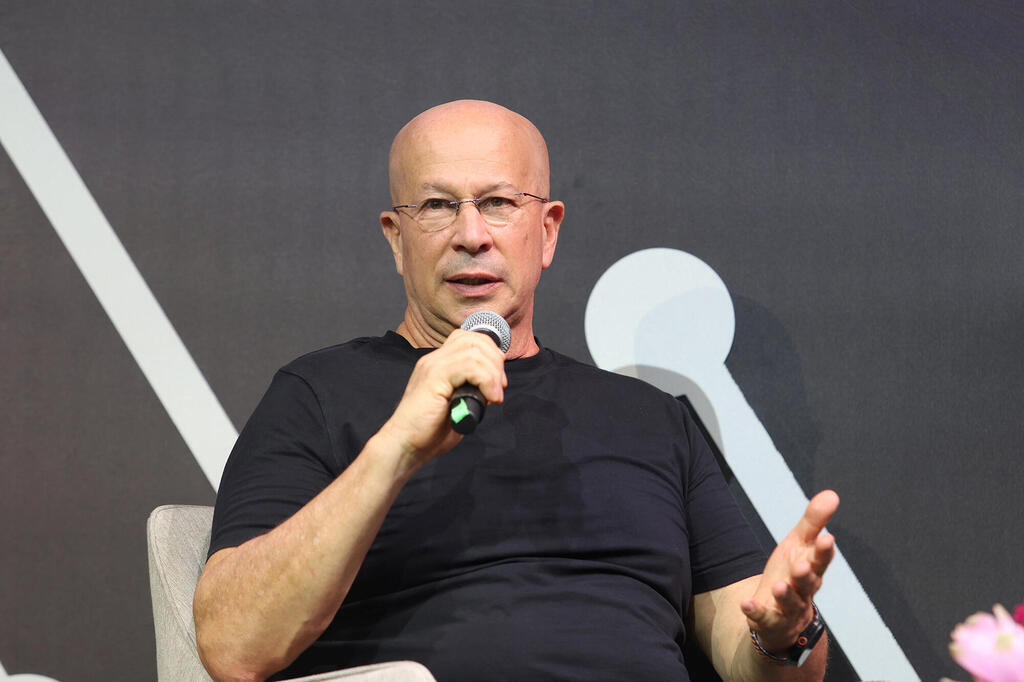
AI Conference
Yuval Tal: “There has never been a better time to found a startup”
The Payoneer co-founder, who recently set up a new AI startup named Linguana, spoke at Calcalist's AI Conference about the transformative opportunities for creators and startups.
Serial entrepreneur Yuval Tal, known for Payoneer and Borderfree, offered a sweeping look at the evolving landscape of AI-driven content creation during an interview at Calcalist’s AI Conference. Tal’s discussion centered on the transformative potential of AI for creators and professionals, and the broader societal shifts it may unleash.
“I think that there has never been a better time in history to found a startup,” said Tal, who recently founded a new AI startup named Linguana. “AI has created crazy opportunities. The ability to bring a group of people together to create value is a privilege, it’s satisfying. It’s a really beautiful time to build.”
Linguana, which is developing a global distribution and monetization platform for creators, raised $8.5 million from several notable investors earlier this year, including Oren Zeev, Zohar Gillon, Eyal Waldman, and Oren Dobronsky, as well as the venture capital fund 2LVC.
The company focuses on AI-driven localization and content adaptation, helping creators and enterprises bring content to new audiences globally. Tal said the startup leverages AI to optimize not just translation, but voice, tone, and cultural nuance, aiming to make global content feel truly native.
“Linguana is about helping creators reach the world,” he said. “It’s not just about words, it’s about context, emotion, and authenticity.”
Tal described a world in which AI tools dramatically lower the barriers to entry for creators and small teams. “What was expensive before can now be done by two or three people, or even one person,” he said. “Almost every profession can find ways to add value. Take a young lawyer, instead of joining a firm, they can create a firm that offers contracts digitally, improving them with AI. Or a professor who lectures in mathematics can structure content that feeds AI models. The opportunities are enormous.”
He stressed the importance of quality and nuance in AI-driven content. “In principle it’s simple and anyone can do it. In practice, it’s very, very complex. We went in depth to make it professional, including conveying emotions and nuances, separating voices, even in crowded scenes like a birthday party with five children in Italian. A lot of AI tools are very technological, but we’ve entered a more complex area.”
Tal also highlighted the commercial implications of AI, particularly in advertising and data monetization. “Because we have a huge amount of movies and content all over the world, we can insert advertisements dynamically,” he explained. “In the middle of a movie in Italian the speaker talks about pasta, in French he talks about escargot, we control the ads. At the same time, we have tagged data that we sell to companies that need large quantities of structured content for AI training.”















